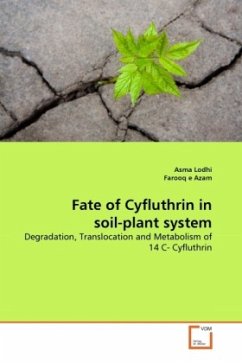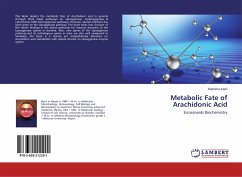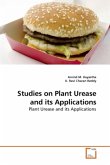The use of pesticides in agriculture is increasing at a rapid pace to maintain plant health and increase agricultural productivity. An important aspect of the pesticide interactions in the soil- plant system is their effect on different soil microbial processes or functions that influences growth and nutrient uptake of crop plants. However, meager information is available on how the microbial responses to pesticides are reflected on plant growth and N uptake. Synthetic pyrethroids are commercially successful group of pesticides because of their desirable environmental properties like short-term persistence and non-toxicity to mammals. Labelled Cyfluthrin (a Baythroid) was used as a tag in the studies including translocation, degradation and metabolism. This book encompasses an account of the study i.e. the fate of 14C-cyfluthrin in the soil- plant system at the Nuclear Institute for Agriculture and Biology, Pakistan. It also provides an insight into the knowledge of an important branch of the pesticides for the people who are interested such as research scholars, postgraduate students and even personnel of pesticide enterprises.
Bitte wählen Sie Ihr Anliegen aus.
Rechnungen
Retourenschein anfordern
Bestellstatus
Storno








